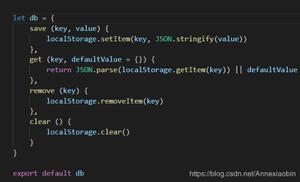vue-router的History 模式常用的三种配置方式(去掉地址栏中的#号)

第一种:nginx配置
conf主要的配置代码:
http { # nginx负载均衡配置
upstream dynamic_balance {
#ip_hash;
server 192.168.100.123: 8081;
}
# 省略其他
server {
listen 80;
server_name localhost;
#访问工程路径
root website;
index index.html index.htm;
#转发把原http请求的Header中的Host字段也放到转发的请求
proxy_set_header Host $host;
#获取用户真实IP
proxy_set_header X - real - ip $remote_addr;
proxy_set_header X - Forwarded - For $proxy_add_x_forwarded_for;
#接口转发
location /base/ {
proxy_pass http: //dynamic_balance;
}
#启用history模式( 什么请求都只返回index.html)
location / {
try_files $uri $uri / /index.html;
}
}
}
第二种:原生node.js
const http = require('http');const fs = require('fs');
const path = require('path');
const httpProxy = require('http-proxy');
const childProcess = require('child_process'); // 可自动打开浏览器
const filepath = path.resolve(__dirname,'../');
const proxy = httpProxy.createProxyServer(); // 创建代理服务器
const {proxyTable = [],port = 8080} = require('./index.js');
http.createServer(function(req,res){
fs.readFile(filepath + req.url,function(err,data) {
proxyTable.forEach((item) => {
if(req.url.indexOf(item.api) !== -1) { // 匹配上接口代理
proxy.web(req,res,{target: item.target});
proxy.on('error',function(e) { // 代理失败处理
console.log(e);
})
} else {
if(err) {
fs.readFile(filepath + '/index.html', 'utf-8',(err,data) => {
res.write(data);
res.end()
})
} else {
res.write(data);
res.end();
}
}
})
})
}).listen(port,() => {
console.log('服务启动了');
});
childProcess.exec(`start http://localhost:${port}/`);
这儿用到了接口代理,需要安装http-proxy:npm i http-proxy -D。
其中引入的index.js代码如下:
module.exports = { port: 8081,
host: 'localhost',
proxyTable: [{
api: '/webgate',
target: 'http://192.168.100.112:8080/'
}]
}
第三种:基于 Node.js 的 Express的connect-history-api-fallback 中间件
const history = require('connect-history-api-fallback');const express = require('express');
const path = require('path');
const { createProxyMiddleware } = require('http-proxy-middleware');
const app = express();
const childProcess = require('child_process');
const {proxyTable = [],port = 8080,host = 'localhost'} = require('./index.js');
const pathname = path.resolve(__dirname, '../');
app.use('/',history({
index: `/console.html`,
verbose: true
}));
app.use('/',express.static(`${pathname}`)); // 设置静态资源访问路径
proxyTable.forEach((item) => {
app.use(createProxyMiddleware(item.api,{
target: item.target,
changeOrigin: true,
ws: true
}));
})
app.listen(port,() => {
console.log(`listen:${port}`);
})
childProcess.exec(`start http://${host}:${port}`)
其中引入了的index.js跟第二种代码一样。
参考地址:《HTML5 History 模式》
以上是 vue-router的History 模式常用的三种配置方式(去掉地址栏中的#号) 的全部内容, 来源链接: utcz.com/z/380851.html









